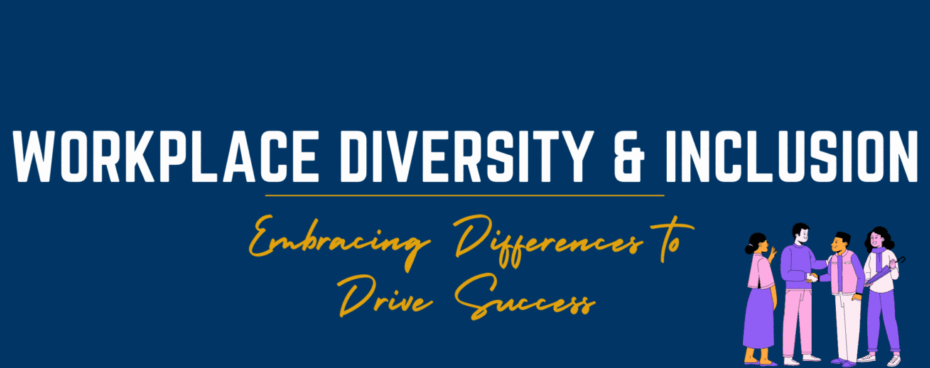Diversity and inclusion in the workplace have become increasingly important in recent years, and India is no exception. With its diverse population and rich cultural heritage, India has the potential to leverage diversity to drive business success. However, achieving workplace diversity and inclusion requires a concerted effort from all stakeholders, including employers, employees, and policymakers. In this blog post, we’ll explore the current state of workforce diversity inclusion in India and discuss some strategies for promoting a more inclusive workplace culture.
Current State of Workplace Diversity and Inclusion in India
India is a country with great diversity in terms of language, culture, religion, ethnicity, and gender. However, this diversity has not translated into equal representation in the workplace. According to a recent study by the Indian Institute of Management, only 2.7% of the CEOs of India’s top 500 companies are women, and less than 1% are from minority communities. This lack of diversity at the top echelons of the corporate world is reflected in the overall workforce, where women and minorities are underrepresented in many industries.
However, there are some positive signs of change. In recent years, many Indian companies have recognized the value of diversity and inclusion in driving business success. Companies like Infosys, Wipro, and Tata Group have taken steps to promote diversity in their workforce by implementing policies such as flexible work arrangements, diversity training, and mentorship programs. Additionally, the Indian government has introduced several initiatives to promote diversity and inclusion, such as the reservation system for disadvantaged communities and the Maternity Benefit (Amendment) Act, which mandates paid maternity leave for female employees.
Strategies for Promoting Workplace Diversity and Inclusion in India
To promote workforce diversity inclusion in India, employers, employees, and policymakers need to work together to create a more inclusive workplace culture. Here are some strategies that can help:
Implement diversity and inclusion policies: Employers can take concrete steps to promote diversity in their workforce by implementing policies such as flexible work arrangements, diversity training, and mentorship programs. These policies can help create a more inclusive workplace culture that values and embraces differences.
Address unconscious bias: Unconscious bias is a major barrier to diversity and inclusion in the workplace. Employers can address this by providing diversity training to their employees and implementing hiring practices that prioritize diversity.
Provide equal opportunities: To ensure that all employees have an equal opportunity to succeed, employers need to create a level playing field. This means providing equal access to training, promotions, and other opportunities regardless of gender, ethnicity, or other characteristics.
Foster an inclusive workplace culture: Employers can create a more inclusive workplace culture by encouraging open communication, respecting differences, and promoting a sense of belonging among all employees.
Collaborate with policymakers: Policymakers can play a crucial role in promoting diversity and inclusion in the workforce. Employers can collaborate with policymakers to create initiatives that promote diversity, such as tax incentives for companies that prioritize diversity or government-funded training programs for underrepresented communities.
Conclusion
Workplace diversity and inclusion is critical to driving business success in India. While there is still a long way to go, many companies and policymakers are recognizing the value of diversity and taking steps to promote inclusion. By implementing policies that promote diversity and addressing unconscious bias, employers can create a more inclusive workplace culture that values and embraces differences. With the right strategies in place, India can leverage its diversity to drive innovation and growth in the years to come.

